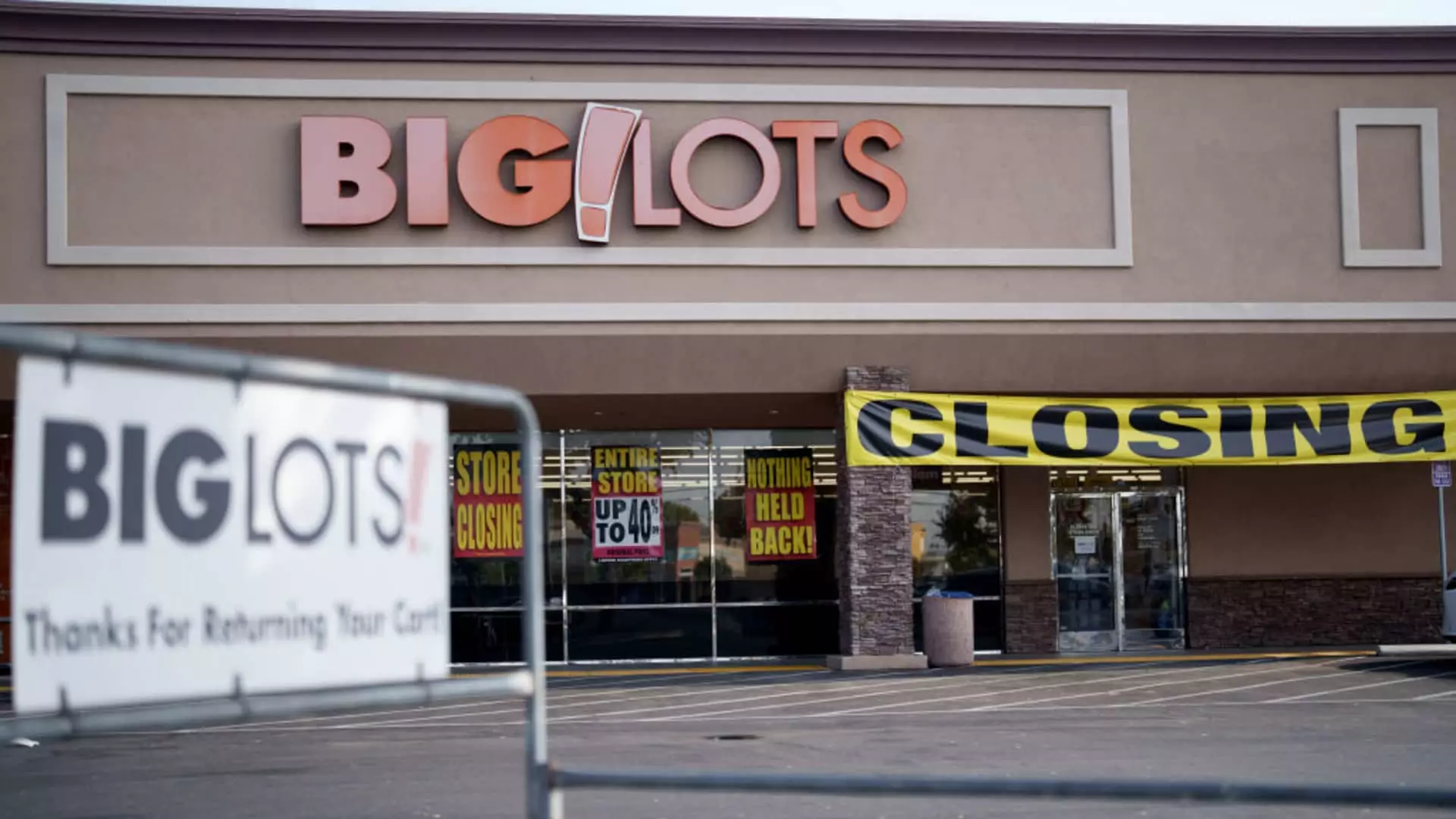Discount home goods retailer Big Lots recently filed for bankruptcy protection, citing high interest rates and a sluggish housing market that led to a decrease in demand for its low-priced furniture and decor. The Chapter 11 filing included an agreement to sell the business to private equity firm Nexus Capital Management for approximately $760 million. This deal consisted of $2.5 million in cash along with the remaining debt and liabilities. Big Lots, with over 1,300 stores across 48 states, is known as one of the largest closeout retailers in the country and specializes in providing budget-friendly prices for home goods.
In response to the challenging economic conditions, Big Lots announced that it would be closing nearly 300 stores to improve its balance sheet and reduce costs. The company aims to operate its business normally during this transition period. CEO Bruce Thorn emphasized the importance of moving forward with new owners who believe in the business and provide financial stability. While Big Lots remains committed to offering extreme bargains and outstanding customer experiences, the restructuring process is crucial for optimizing operational performance.
The Competitive Landscape
Apart from macroeconomic factors, Big Lots faces stiff competition in the discount retail space, particularly when it comes to home goods. Industry analysts have pointed out that the retailer struggles to differentiate itself from competitors like Wayfair, Walmart, and TJX Cos.’ Home Goods. Neil Saunders, managing director of GlobalData, highlighted that Big Lots may not always offer the best value for money, with items that can be found cheaper at other stores. Furthermore, the abundance of choices at Big Lots can lead to confusion for consumers and a less than satisfactory shopping experience.
Despite the challenges, Nexus Capital Management, the prospective new owner of Big Lots, is optimistic about the retailer’s future. Managing director Evan Glucoft expressed confidence in Big Lots’ potential for growth and plans to restore the brand to its status as America’s leading extreme value retailer. The firm is excited about partnering with Big Lots and believes that the company’s “greatest days are ahead.”
The Bankruptcy Process
As part of the bankruptcy proceedings, Big Lots will hold a court-supervised auction for its business, which could potentially lead to a sale to a different buyer if they submit a higher bid than Nexus’ offer. The retailer has enlisted the services of various firms, including law firm Davis Polk & Wardwell, investment bank Guggenheim Securities, and advisory firm AlixPartners. A&G Real Estate Partners is serving as Big Lots’ real estate advisor, while Nexus is represented by law firm Kirkland & Ellis.
Big Lots’ bankruptcy filing serves as a stark reminder of the challenges faced by retailers in a competitive market environment. As the company navigates through this restructuring phase, it will be crucial for Big Lots to address issues related to pricing, assortment, and overall customer experience to regain its position as a trusted destination for bargain home goods. The partnership with Nexus Capital Management presents an opportunity for Big Lots to revitalize its brand and chart a new path towards sustainable growth and success in the retail industry.


Leave a Reply